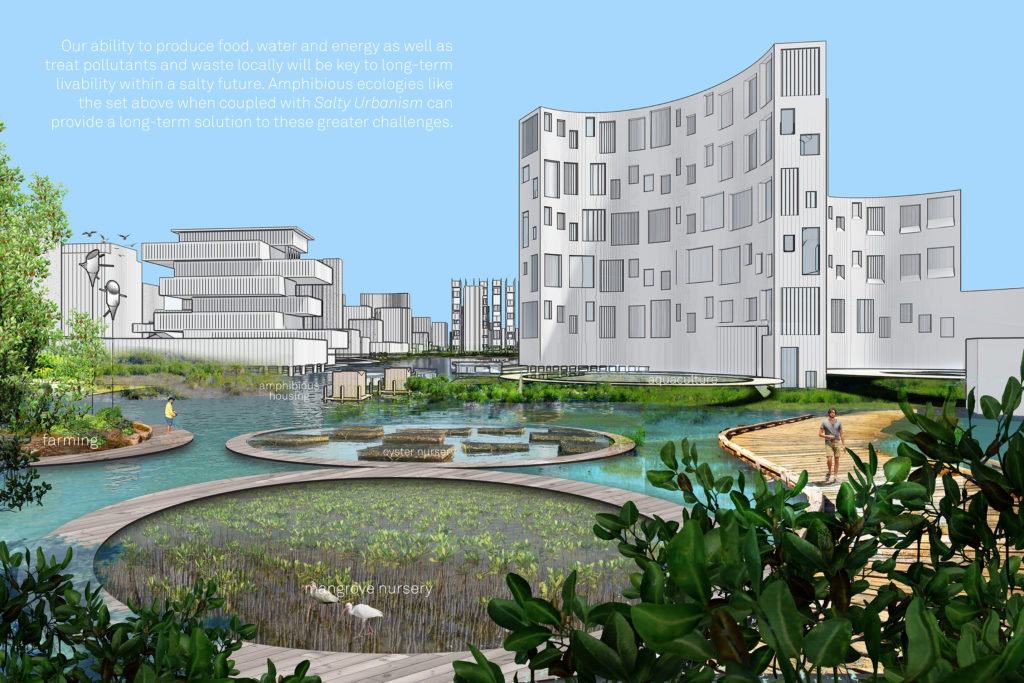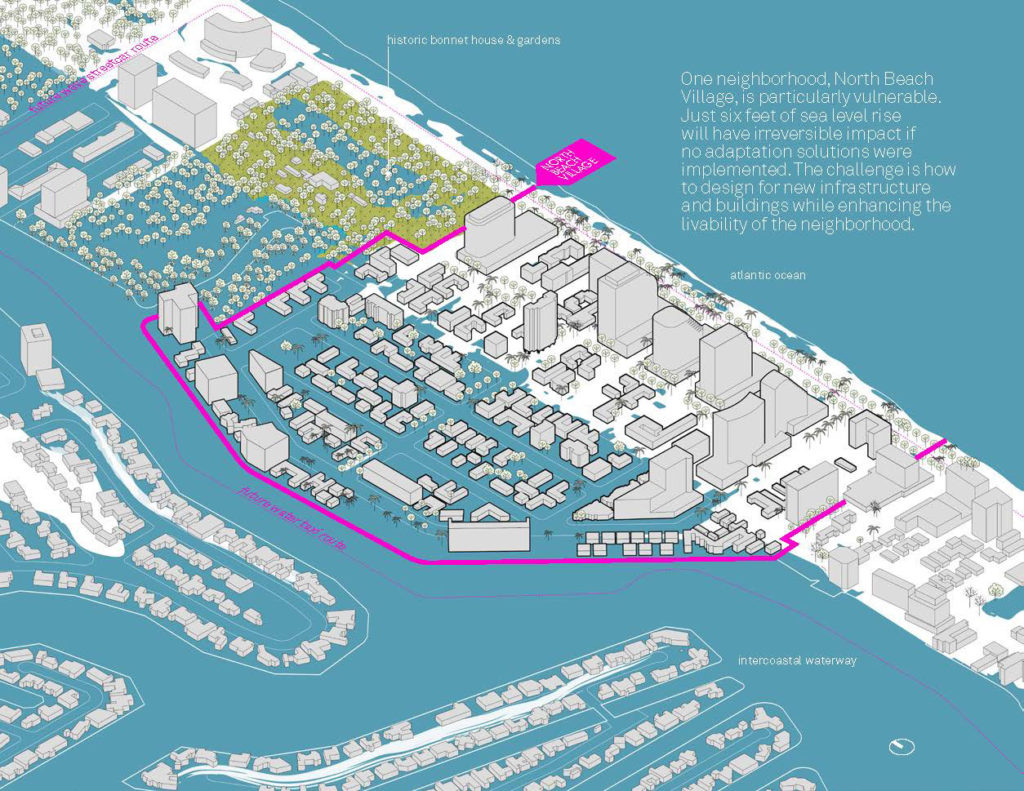
By 2060 sea levels are expected to rise by more than 3 feet in South Florida. But city and county planners face the challenge of balancing near-term adaptation costs with long-term sea-level rise projections.
With funding from Florida Sea Grant, Jeff Huber, an associate professor in Florida Atlantic University’s School of Architecture, helps to change the way cities approach future urban development. He leads an interdisciplinary team that includes architects, engineers, urban planners and scientists to produce a suite of decision tools, known as the Adaptation Design and Planning Tool (ADaPT) to demystify the concepts of long-term climate change adaptation while improving livability.

Using the low-lying seaside neighborhood of North Beach Village as a model, the team is working closely with the City of Fort Lauderdale to envision four plausible scenarios by 2060: defend, retreat, adjust, or continue business as usual.
“We are working with the city to change design standards for public realm and private development so they can serve as ecological contributors rather than the environmental liabilities,” said Huber.
Team members first completed a hydrological assessment of North Beach Village to determine the neighborhood’s capacity for using green infrastructure and low impact development as a climate adaptation method. Next, they hosted a series of workshops to evaluate options and preferred solutions—like defending low-lying areas with a berm and mangrove forests, or replacing static high rises with amphibious buildings.
Armed with that information, the team is now producing a how-to manual for North Beach Village, complete with policy recommendations, cost considerations, design ideas, and how to plan for various ecotypes.
“We want to show how we transform our relationship with water,” Huber said. “Not one that we’re fighting, but one that we accept, that we work with and we design with it.”
The project was recently recognized as one of just three national awards for Regional and Urban Design from the 2018 American Institute of Architects Institute Honor Awards, the highest honor bestowed on a project by the profession. The judges noted that the submitted design gives “each community a myriad of potential responses that could work for them as they work together,” and that the Sea Grant-sponsored framework “could be implemented in any community facing the dilemma of sea-level rise.”



